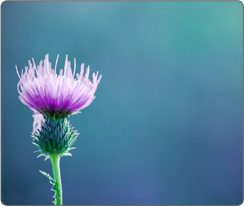Liver Cleansing or Liver Flushing, Facts you Need to know

The liver is a vital organ of detoxification. Among its hundreds of functions, the liver:
- processes nutrients
- produces bile to aid digestion
- filters blood, and
- breaks down potentially toxic substances into harmless ones that your body either uses or excretes.
The liver is actually the largest internal organ in the human body, taking up almost the entire upper right section of the abdomen.
Although the liver plays a fundamental role in our overall health and well-being, few people think about the organ while they are making their day-to-day decisions about food, drink, and lifestyle. And unfortunately, damaging the liver is easier to do than you might think. Most people unwittingly ingest or otherwise take in any number of toxins through air, food, water, and even through products that we put on our skin.
Liver Stress
As a result, the liver assumes a large portion of the burden for detoxifying our bodies, and it typically does a pretty miraculous job of it! All the same, the liver can only handle so much “work,” and it is not uncommon for the organ itself to become rife with toxins over time. When this happens, the liver’s ability to carry out its vital functions decreases, and the liver becomes vulnerable.
Why Cleanse the Liver or Flush?
One of the ways we know that the liver is in danger is through blood testing. While the liver contains thousands of enzymes, if elevated levels of certain liver enzymes are revealed in a blood test, it may mean that the liver has sustained injury or has otherwise been damaged. Some of the most common liver enzymes that are assessed in determining liver health include alkaline phosphatase, alanine transaminase, aspartate transaminase, gamma-glutamyl transpeptidase, lactic dehydrogenase, and others.

Fortunately, it is possible to cleanse the liver, and there are several ways to do so. One popular method – typically called a “liver flush” – encourages people to drink an unnatural amount of olive oil and Epsom salts. This approach is undeniably harsh on the body.
A second, more natural and gentle approach, is one that uses the body’s innate detoxification system, boosted by the therapeutic properties of vitamins, herbs, and other nutritional supplements. This is a liver cleanse. For example, omega-3 fatty acids, thistle extract (also called Silymarin), and vitamins B6, C, and E have evinced health-boosting effects on the liver.
Healthy Liver, Healthy Body
Completing a liver cleanse or a colon cleanse can be a positive and rejuvenating experience. As you support and improve liver health, you effectively increase your body’s ability to detoxify itself, leading to enhanced well-being. Bruce Fife, ND and author of the well-known text The Detox Book, wrote that a liver cleanse can result in a whole host of positive results.
In short, because we live in a toxic world, and because our livers carry a large part of the burden of detoxification, taking the steps necessary to find and properly use effective components of a liver cleanse is an important step in achieving and maintaining optimal health. As you look for products to help you cleanse your liver, be sure to stick with those that are all-natural, gentle on the body, and which augment your body’s natural cleansing and detoxification systems.
Liver toxicity. (n.d.) Natural Standard: The Authority on Integrative Medicine, Retrieved April 5, 2011 fromhttp://naturalstandard.com/databases/conditions/condition-livertoxicity.asp
Takahashi, T. (1994). Atlas of the Human Body.NY: HarperCollins Publishers, Inc.
Cirrhosis and liver disease. (n.d.). Life Extension Magazine, Retrieved July 9, 2011 from http://www.lef.org/protocols/gastrointestinal/cirrhosis_liver_disease_01.htm
Liver cleanse – gallbladder cleanse – liver flush. (n.d.). CureZone.com, Retrieved July 9, 2011 from http://curezone.com/cleanse/liver/huldas_recipe.asp
Fife, B. (2001). The Detox Book.Colorado Springs, CO: Picadilly Books.

